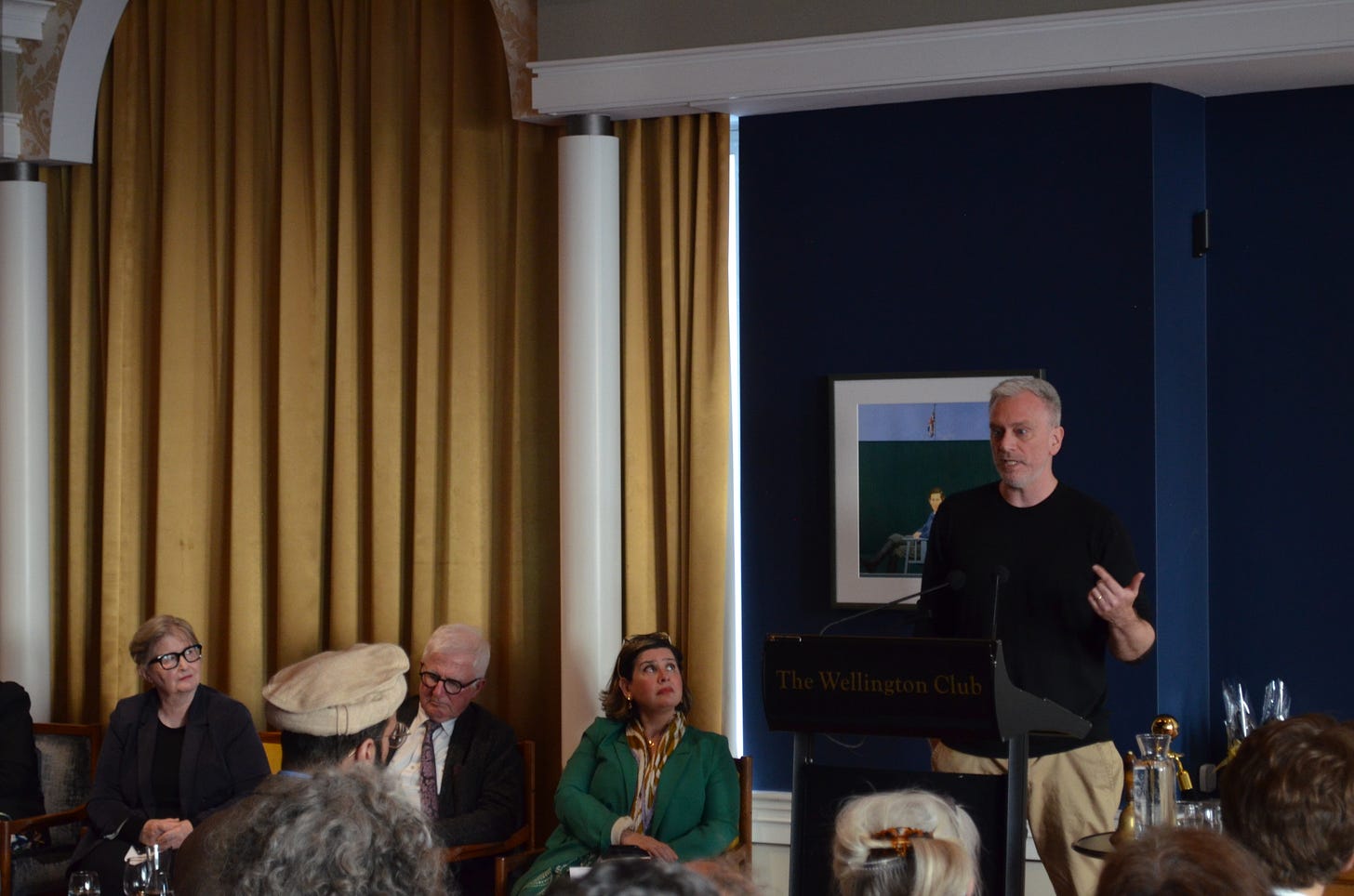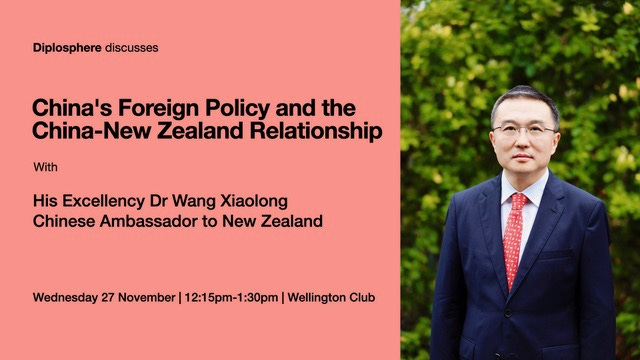00:00 Josh Fairfield
00:36 It’s not an Election, it’s an Inflection Point
01:18 US Squandered Soft Power
04:55 Silicon Valley Set to Reap AI Rewards
09:05 Alistair Crozier
10:02 Ordre du Jour (in US): Contain China
12:45 What does this all mean for New Zealand?
16:30 NZ must ascend a “Mountain Pathway”
Upcoming Event
China's Foreign Policy and the China–New Zealand Relationship
Join Diplosphere on 27 Nov with Ambassdaor Wang Xiaolong as he shares fresh insights into China’s foreign policy and the China–NZ relationship.
Josh Fairfield
It’s not an election, it’s an inflection point - the rule of law has corroded such in the small number of swing states that decide the US election result that many lack confidence in courts’ impartiality. The courts, including the US Supreme Court, are more partisan than ever. Recession of Democracy is a globally recognised phenomenon, as the US moves from a flawed, to managed democracy with designed electoral uncertainty.
How does this affect New Zealand? New Zealand’s friends in Europe, who are big proponents of the rules-based order, will be preoccupied with the fallout from US domestic issues - with regard to Ukraine where American resolve is likely to flag - especially under Trump. New Zealand and the Pacific will likely be peripheral to European concerns.
The US has largely squandered its enormous soft power. Trump would accelerate this decline, while Harris would attempt to maintain current systems and rules, to the best of her ability.
Regulation & Frontier AI - Technology policy will differ significantly under Trump v Harris. Partisan politics will drive technology policy under Trump, while under Harris, policy and regulation will respect state law. The state of California is developing law to regulate what is termed as frontier AI - that is, the most advanced large language model technology, which is speedily reaching near human generalised capability, and can significantly affect human ability to thrive. For instance, this is AI that can impact directly on our environment.
AI is going to transfer wealth from around the world to Silicon Valley. This has happened in the past, with social media, the sharing economy etc. The economic pie grows with these productivity gains but the tech owners take even larger slices of it. What does this mean for New Zealand? Under Trump - unprecedented competition from unshackled US tech sector (may affect Rocket Lab), and a possible move to de-centralized finance.

Alistair Crozier (personal view)
US election will impact NZ’s relations with other countries as well, and China is an important one for us. The Republicans and Democrats disagree on almost everything, but one thing both do agree upon is that China is a threat to the US (from 2017) and to the world order that safeguards its dominance, and China needs to be somehow contained. “Who will win the battle for the 21st C.?” - Kamala Harris during recent presidential debate. (ed: does NZ view China the same way? This year much Washington language used in communiques on so-called Indo-Pacific) But … China is not going to be contained, it is out of the box now. This is the regional & global context for NZ in the next four years and longer.
No real preference on US election outcome but perhaps lean towards Trump: China plays a very long game and a sense in China that a Trump-led US may accelerate relative decline. Also, a remote possibility of Trump unpredictability leading to a different approach of detente. Probably not, but more so than Harris admin. Biden not only kept in place Trump’s 2017 anti-China trade and investment measures, it has extended them. Expect this to continue under Harris too, even with a VP (Tim Waltz) who knows China well.
What does this all mean for New Zealand? Significant interest in both China & US, and differences in interests will grow. NZ must keep its eye firmly on our own national interests (ed: we need to spell these out!). Tricky: as both China and the US sometimes act in ways that do not ensue trust, and take exception to some rules (South China Sea, US trade protectionism and undermining of WTO, UN Law of the Sea, to name but a few).
What do we think China wants to achieve? This is the crux of question. Not world domination, but access to markets and resources to support its rise. In response to US-China tensions, some see hedging and balancing in a negative light, however is this not the very definition of taking an independent viewpoint - independent foreign policy - as well established in places like Vietnam or Singapore?
The “China tightrope” is a misnomer for the New Zealand-China relationship as it implies oblivion from one misstep. A “mountain pathway” is a better analogy - missteps are detrimental but not fatal. New Zealand must realise that even our traditional friends have their own multi-dimensional relationships with China including trade relationships, that they may privilege over some common front (ed: or lattice fence to use security parlance). NZ could be left hanging when push comes to shove when the “cool kids actually hand in their homework” (ed: listen to the talk to get that one!)
If you ask China, if they would like Donald Trump or Kamala Harris to win the November election, the answer would be: No.












